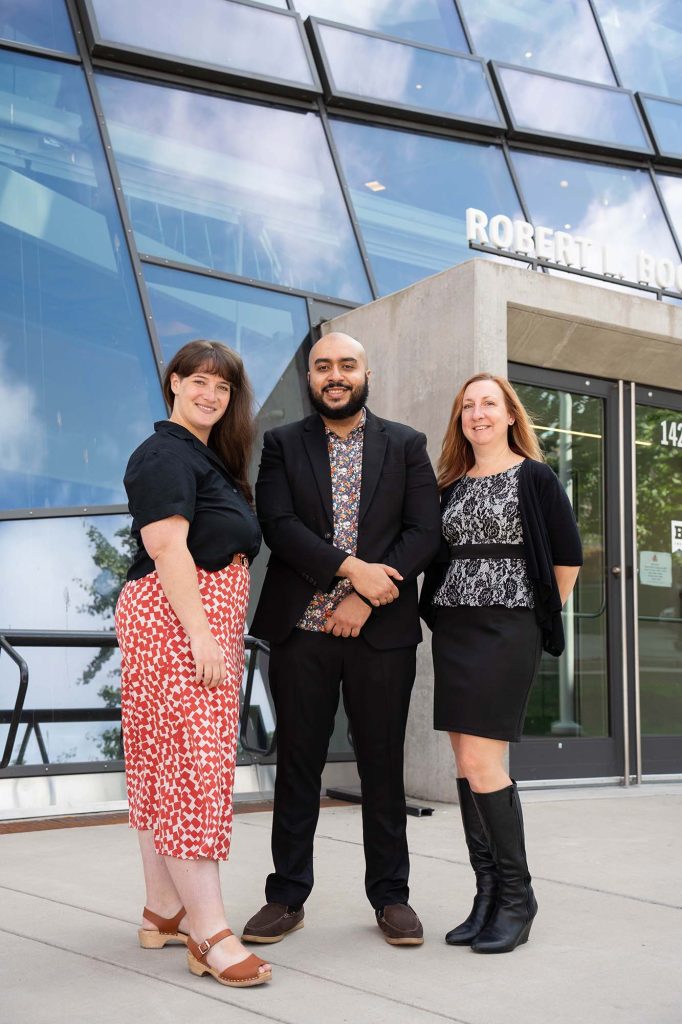At UBalt, we believe that AI is not a threat, but an opportunity. Under the direction of the Center for Excellence in Learning, Teaching, and Technology (CELTT), the University is ensuring that the technology complements education rather than overshadowing it.
BY POORNIMA APTE
ILLUSTRATIONS BY MARIO WAGNER

For a long time, higher education has moved at a predictable pace with educators adopting new technology tools gradually. The advent of artificial intelligence (AI) feels much more disruptive, especially because its pace of evolution is so rapid.
Since news of the impressive capabilities of generative AI—ChatGPT is its most familiar variation—broke in November 2022, the technology has been making systematic inroads in higher education. A 2024 Turnitin survey of college students in the fall 2023 term found that more than half used generative AI in some manner.
The post-AI landscape is entirely new—and unprecedented. With respect to AI, “what I would offer is that The University of Baltimore, as other universities, is in the midst of what might be similar to the Cambrian explosion in prehistory, when you had so many life forms in such a small time and such accelerated evolution—when you’re in the middle of something that dynamic, it’s unclear where you are relative to others,” said Dr. Alan Lyles, Henry A. Rosenberg Professor of Government, Business and Nonprofit Partnerships at the College of Public Affairs.


